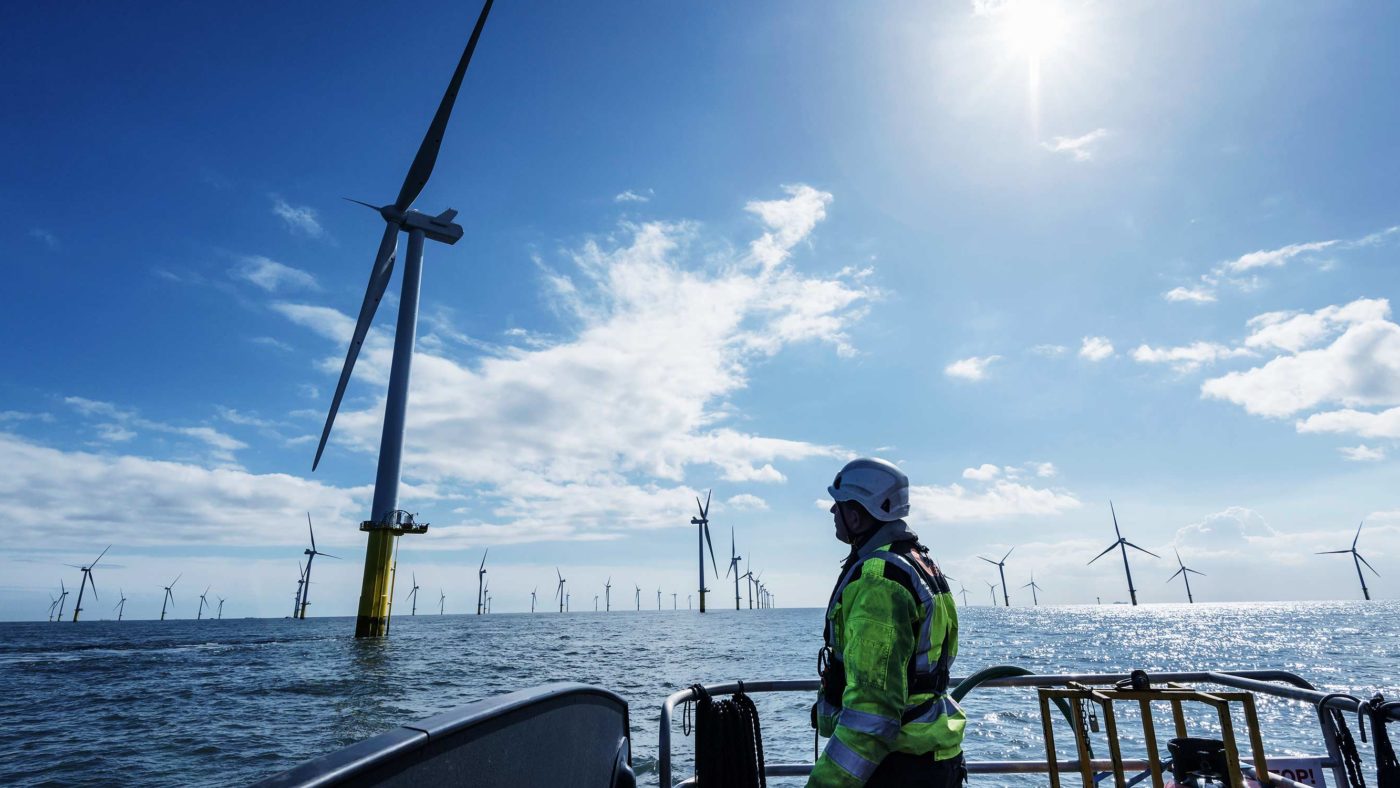The IMF’s latest growth update painted a gloomy picture for Britain, with an estimate that our economy will contract by 0.6% this year.
Some have chosen to contest the IMF’s economic forecast, but at least one of their other findings is hard to dispute – that the UK’s heavy dependence on gas has meant British bill payers have been the worst hit in western Europe.
The rising price of gas has cost the UK economy tens of billions of pounds over the last year. Shifting away from gas and towards a low-carbon future could help address not only the UK’s sluggish growth but also its productivity problem – the ONS reported recently that the UK has been the second worst performer in the G7 since the pandemic.
A new report based on analysis from CBI Economics has found that venture capital investment in green industries is already growing at a rate of 30% per year – a good sign of growth to come. It’s also found that jobs in the UK’s Net Zero economy are 1.7 times more productive than the average. In areas historically challenged by low productivity such as the East and West Midlands, the Net Zero parts of the economy are more than 2.5 times more productive than the regional average.
As we set out in the report, the Net Zero economy encompasses 16 different sectors and 20,000 companies operating in everything from AgriTech and carbon capture, to heating, building, renewables and green finance. Some are large mutlinationals, others modestly sized SMEs.
Perhaps the most striking feature of the ‘Mapping the Net Zero Economy’ report is not just the breadth of the Net Zero economy, but the breakdown of where these businesses are located. Notably, Net Zero as a proportion of the total GVA is bigger outside of London, with ‘levelling up’ areas like Tyneside and Teesside, South Yorkshire and North Derbyshire and Merseyside having grown bigger proportions of Net Zero jobs and industry compared to the capital. Put all the businesses involved in Net Zero together and they are now worth over £70bn to the UK economy.
In 2022 the UK was ranked second globally in climate tech venture investment, with the US in first place. Now, though, America’s Inflation Reduction Act, with huge subsidies for renewables, looks like changing the game. With the EU looking to follow America’s lead, and the Chinese government already heavily supporting its own renewables sector, the UK risks being left on the sidelines. The fact that new British-based businesses such as electric van manufacturer Arrival are now looking to set up shop in America is a worrying sign that this global competition could see investment in green industry going elsewhere.
Business leaders, including CBI chief Tony Danker, have warned of an ‘arms race’ between the EU and the US over green investment. The former Levelling Up Secretary, Simon Clarke has also warned that we ‘cannot afford to be left behind by our partners in the US and Europe’.
There is a live question as to what the Government might do in response to the heating up of the global race for Net Zero industries. Clarke’s successful campaign to lift the ban on onshore wind could draw in private sector funding at little or no tax-payer expense. And there are rumours of a package to support green steel production – a sector where the UK currently lags Europe.
If the UK can build on early successes in offshore wind, according to consultancy McKinsey the global market opportunity for UK companies producing the goods and services for a ‘green capex revolution’ could be worth more than £1tn by 2030.
Countries responsible for 91% of global GDP are all now committed to Net Zero, and efforts have shifted a gear in the past year or so. Markets are driving forward renewables which are cheaper and, unlike gas, don’t rely on unreliable foreign powers for delivery. The UK has made a good start, but we cannot let up if we are to capitalise on this growing trend and make the most of a greener future.
Click here to subscribe to our daily briefing – the best pieces from CapX and across the web.
CapX depends on the generosity of its readers. If you value what we do, please consider making a donation.


